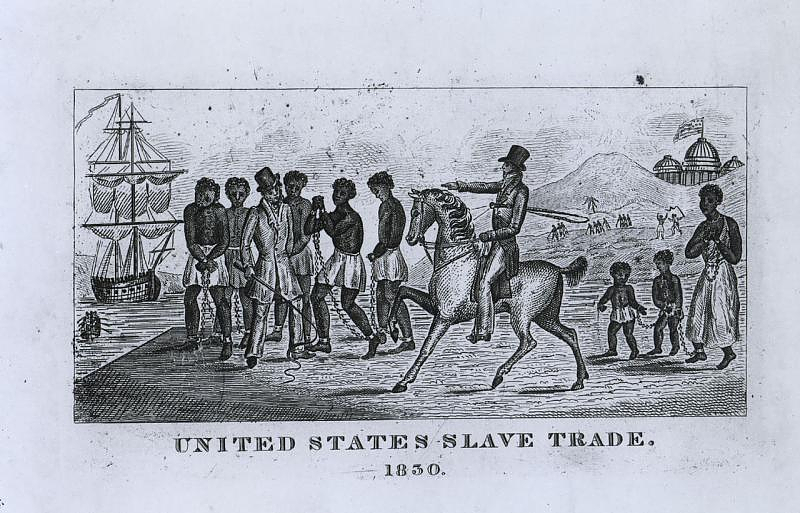
Thomas Jefferson, third President of the United States (Source: White House)
On March 3, 1807, President Thomas Jefferson signed into law a bill approved by Congress the day before “to prohibit the importation of slaves into any port or place within the jurisdiction of the United States.”
The 1807 act, which would go into effect on January 1, 1808, was a comprehensive attempt to shut down the foreign slavery trade. Congress gave all traders nine months to cease their operations in the United States.
The 1807 Act was born out of language written into the original Constitution, debated and drafted in the summer of 1787:
The Migration or Importation of such Persons as any of the States now existing shall think proper to admit shall not be prohibited by the Congress prior to the Year one thousand eight hundred and eight, but a Tax or duty may be imposed on such Importation, not exceeding ten dollars for each Person.
-Article I, Section 9
Slaveholding delegates, unwilling to accept a Constitution that placed any limits on American slavery, saw this as a victory. It protected the foreign trade for another twenty years and provided no guarantee that the trade in enslaved people would end. And it prompted a vast increase in the importation of enslaved Africans:
During this period, labor hungry planters in the lower South imported tens of thousands of Africans; indeed, more slaves entered the United States between 1787 and 1807 than during any two decades in history.
–Peter Kolchin, American Slavery (Hill & Wang, 1993), p. 79
Of course, the end of the legal importation of enslaved people sounds like a good thing. Optimists at the Constitutional convention in 1787 and in Congress in 1807 saw the end of the foreign trade as a necessary first step to the ultimate end of slavery in America. They were woefully wrong.

U.S. Slave Trade 1830 (Image Courtesy of Smithsonian Museum of American History)
The end of the legal foreign trade –illegal smuggling of enslaved Africans would continue– only created a large and more profitable internal market for the enslaved by forcing up the value of enslaved people, even as demand from cotton growers was increasing.
The 1807 act sought to end the trade, but did nothing to undermine the legitimacy holding men and women in bondage.
(Source: “The Abolition of the Slave Trade,” New York Public Library Schomburg Center for Research in Black Culture)
Large holders of enslaved people in essence became even more wealthy as breeders of enslaved people. In 1800, there were about one million enslaved people in America. By 1860, at the outbreak of the Civil War, there were nearly four million.
Expectations that ending the African slave trade would put slavery on the road to gradual extinction proved radically wide of the mark. During the half century after the legal end of slave importation, the slave population of the United States surpassed that of any other country in the New World….
–Peter Kolchin, American Slavery, p. 94
While a milestone of sorts in the abolition movement, the Slave Act of 1807 merely cemented the financial and political value of slavery for generations to come and did precious little to bring about its end.
Read more about the role of slavery in American history in my books:
The subject is also at the center of my forthcoming book In The Shadow of Liberty: The Hidden History of Slavery, Four Presidents, and Five Black Lives. (Holt Books for Young Readers; September 20, 2016 publication date)
